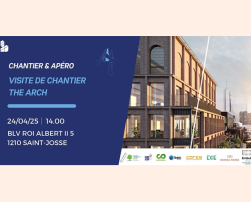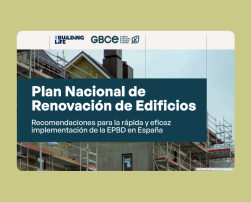The EU's energy future is all about making homes more energy-efficient, but the big question is whether we're moving quickly enough.
Building Renovation
Building Renovation
The meetMED project (Mitigation Enabling Energy Transition in the Mediterranean region) is an EU-funded initiative aimed at bolstering energy security across countries like Algeria, Egypt, Jordan, Lebanon, Libya, Morocco, Palestine, and Tunisia.
The European Construction Industry Federation's (FIEC) Statistical Report provides detailed information on the EU construction sector in 2024.

'Circularity in the Built Environment' is a reading guide created by the European Circular Economy Stakeholder Platform (ECESP).

The online platform dedicated to the architectural profession in Europe. Explore data on European architects, the architectural market and architectural practices.

This webinar will present the inspection of ventilation systems in non-residential buildings in France, Belgium, and Sweden, and discuss how international regulations are shaping these practices. The goal is to offer an overview of current approaches and foster a better understanding of global trends in ventilation system inspections.

The article presents a comprehensive comparison and calculation of the Carbon Payback Period (CPP) for selected insulation materials, combined with selected typical building partitions, and shows how quickly the payback period of greenhouse gases in the production of insulation materials is completed.

Rénovation d’un immeuble de bureaux transformé en un complexe multifonctionnel.
En el Día Mundial de la Eficiencia Energética, Green Building Council España (GBCE) destaca la urgencia de acelerar la eficiencia energética en el sector de la edificación para cumplir con los objetivos de neutralidad climática fijados para 2050.

El Plan Nacional de Rehabilitación Energética (PNRE) de Green Building Council España destaca la necesidad de una transición energética justa y sostenible en el sector de la construcción.